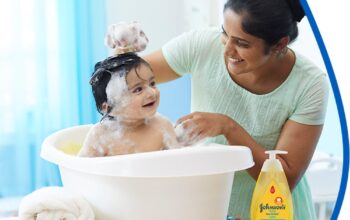Disinfectants are essential in maintaining a clean and healthy environment, particularly in public spaces such as hospitals, schools, and offices. Disinfectants are used to kill harmful microorganisms, including bacteria, viruses, and fungi, that can cause infections and diseases. The COVID-19 pandemic has further highlighted the importance of disinfectants in preventing the spread of infectious diseases. However, the widespread use of disinfectants has raised concerns about their potential health and environmental effects. In this blog, we will discuss the types of disinfectants, their uses, and the potential risks associated with their use.
Types of disinfectants
There are several types of disinfectants available, each with its unique properties and uses. The most common types of disinfectants include:
Bleach: Bleach is a powerful disinfectant that is effective against a wide range of microorganisms. It is often used in hospitals and healthcare settings to disinfect surfaces and equipment. However, bleach can be corrosive and can cause skin and eye irritation if not used correctly.
Alcohol-based disinfectants: Alcohol-based disinfectants are commonly used in hand sanitizers and surface cleaners. They are effective against a range of microorganisms and are generally safe for use. However, they can be flammable and may not be suitable for use on certain surfaces.
Quaternary ammonium compounds (quats): Quats are commonly used in household and commercial cleaning products. They are effective against a wide range of microorganisms and are generally safe for use. However, they can cause skin and eye irritation and can be toxic if ingested.
Hydrogen peroxide: Hydrogen peroxide is a powerful disinfectant that is effective against a range of microorganisms. It is often used in hospitals and healthcare settings to disinfect surfaces and equipment. However, it can be corrosive and can cause skin and eye irritation if not used correctly.
Uses of disinfectants
Disinfectants are used in a variety of settings to maintain a clean and healthy environment. Some of the most common uses of disinfectants include:
Healthcare settings: Disinfectants are used extensively in hospitals and healthcare settings to prevent the spread of infections. They are used to disinfect surfaces, equipment, and instruments, as well as to sanitize hands.
Schools: Disinfectants are used in schools to maintain a clean and healthy environment. They are used to disinfect classrooms, bathrooms, and other areas that are frequently touched by students.
Offices: Disinfectants are used in offices to prevent the spread of infections. They are used to disinfect surfaces, equipment, and other areas that are frequently touched by employees.
Homes: Disinfectants are used in homes to maintain a clean and healthy environment. They are used to disinfect kitchen surfaces, bathroom surfaces, and other areas that are frequently touched by family members.
Potential risks associated with disinfectant use
While disinfectants are effective in killing harmful microorganisms, their widespread use has raised concerns about their potential health and environmental effects. Some of the potential risks associated with disinfectants use include:
Health effects: Disinfectants can cause skin and eye irritation, respiratory problems, and other health effects if not used correctly. Some disinfectants, such as bleach and hydrogen peroxide, can be corrosive and can cause serious injuries if not handled correctly.
Environmental effects: Disinfectants can have a negative impact on the environment, particularly if they are not disposed of correctly. They can harm aquatic life, contaminate water sources, and contribute to the development of antibiotic-resistant bacteria.
Misuse: Disinfectants are often misused, particularly in households where individuals may use excessive amounts or mix different types of disinfectants, which can be dangerous and ineffective.
Antibiotic resistance: The overuse of disinfectants can contribute to the development of antibiotic-resistant bacteria. This occurs when bacteria are exposed to low doses of disinfectants over time, which can cause them to become resistant to the disinfectant and other antibiotics.
Allergies: Some individuals may be allergic to certain types of disinfectants, which can cause skin irritation, respiratory problems, and other health effects.
To minimize the potential risks associated with disinfectant use, it is important to follow proper handling and disposal procedures, use the appropriate amount and type of disinfectant for the specific task, and avoid excessive use or mixing of disinfectants.
The Importance of Disinfectants in the COVID-19 Era
The COVID-19 pandemic has brought about a heightened awareness of the importance of disinfectants in preventing the spread of the virus. Disinfectants are effective in kill bacteria on surfaces, and their use has become an integral part of public health measures to reduce the transmission of COVID-19.
One of the primary ways that COVID-19 spreads is through contact with contaminated surfaces. When an infected person coughs, sneezes, or talks, they release droplets containing the virus. These droplets can land on surfaces, where the virus can survive for several hours to days, depending on the type of surface. If someone touches a contaminated surface and then touches their face, they can become infected with the virus.
Disinfectants are effective in killing the virus on surfaces, reducing the risk of transmission. According to the Centers for Disease Control and Prevention (CDC), regular cleaning and disinfecting of frequently touched surfaces is a critical part of preventing the spread of COVID-19.
Some disinfectants have been specifically tested and approved for use against SARS-CoV-2, the virus that causes COVID-19. The Environmental Protection Agency (EPA) maintains a list of disinfectants that are effective against SARS-CoV-2 and other viruses and bacteria.
It is important to note that while disinfectants are effective in killing the virus on surfaces, they are not effective in killing the virus inside the body. Therefore, it is still important to follow other public health measures, such as wearing masks, practicing social distancing, and getting vaccinated, to prevent the spread of COVID-19.
Conclusion
Disinfectants are an essential tool in maintaining a clean and healthy environment, particularly in public spaces and healthcare settings. However, their widespread use has raised concerns about their potential health and environmental effects. To minimize these risks, it is important to use disinfectants correctly and follow proper handling and disposal procedures. By using disinfectants safely and effectively, we can maintain a clean and healthy environment while minimizing the potential risks associated with their use.
Frequently Asked Questions (FAQs)
What are disinfectants and how do they work?
Disinfectants are chemical agents that are used to destroy or inactivate microorganisms such as viruses, bacteria, and fungi. They work by disrupting the cell walls, membranes, and proteins of microorganisms, which leads to their destruction.
What are some common types of disinfectants?
Common types of disinfectants include bleach, hydrogen peroxide, alcohol, quaternary ammonium compounds, and chlorine dioxide. Each type of disinfectant has specific properties and effectiveness against different microorganisms.
How do I know if a disinfectant is effective against the COVID-19 virus?
The Environmental Protection Agency (EPA) maintains a list of disinfectants that are effective against the COVID-19 virus. Look for disinfectants that have been tested and approved by the EPA for use against SARS-CoV-2, the virus that causes COVID-19.
How often should I use disinfectants to clean and disinfect my home?
The Centers for Disease Control and Prevention (CDC) recommends cleaning and disinfecting frequently touched surfaces at least once daily. In high-traffic areas or areas with a higher risk of contamination, more frequent cleaning and disinfection may be necessary.
Can I use disinfectants on my skin or to disinfect my hands?
Disinfectants are not intended for use on skin or for hand disinfection. Instead, use soap and water or an alcohol-based hand sanitizer for hand hygiene.
What are some potential health risks associated with the use of disinfectants?
Disinfectants can be toxic if ingested or if they come into contact with the eyes or skin. In addition, the overuse or misuse of disinfectants can lead to the development of antibiotic-resistant bacteria. It is important to use disinfectants correctly and follow manufacturer instructions for use and dilution to avoid potential health risks.






